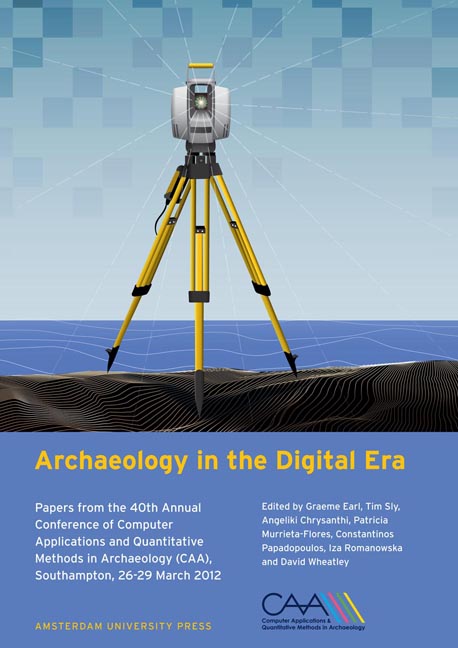 Archaeology in the Digital Era
Archaeology in the Digital Era From the Slope of Enlightenment to the Plateau of Productivity: Developing Linked Data at the ADS
Published online by Cambridge University Press: 16 February 2021
Summary
Abstract:
The Archaeology Data Service (ADS) has a mandate to provide a digital repository for outputs from research funded by AHRC, NERC, English Heritage and other bodies. Archaeology has seen increasing use of the Web in recent years for data dissemination, and the ADS holds a wide range of datasets from archaeological excavations. However datasets and applications are currently fragmented and isolated. Different terminologies and data structures hinder search and comparison across datasets. Because of these impediments, archaeological data can be hard to reuse and re-examine in light of evolving research questions and interpretations. In an attempt to address this, the ADS have begun to ingest some of its excavation data into a triple store and expose it as linked data. This paper will briefly discuss the STAR and STELLAR projects which led up to the development of ADS linked data and will also outline the technologies used to develop it. In particular, it will discuss the more practical details of creating the triple store, populating it with excavation data in RDF format, and finally publishing it as linked data. Finally, using the ADS linked data as an example dataset, an overview of possible future directions will be outlined, in particular to explore how we can enrich the existing and forthcoming linked data with both archaeological and non-archaeological data.
Keywords:
Linked Open Data, Semantic Web, Excavation Data, CIDOC CRM
Introduction
The Archaeology Data Service (ADS) is hosted by the Department of Archaeology at the University of York in the UK, and is funded partly by the UK Arts and Humanities Research Council and partly by project-based funding drawn from academia, the European Union, National and Local Government archaeology services and commercial archaeology. The core objective of the ADS is to support research, learning and teaching with high quality and dependable digital resources. It does this by preserving digital data for the long term, and by promoting and disseminating a broad range of data in archaeology. The ADS promotes good practice in the use of digital data in archaeology, provides technical advice to the research community, and supports the deployment of digital technologies. As a digital archive, it follows the Open Archival Information Systems (OAIS) Reference Model and was awarded the Data Seal of Approval in 2010.
- Type
- Chapter
- Information
- Archaeology in the Digital EraPapers from the 40th Annual Conference of Computer Applications and Quantitative Methods in Archaeology (CAA), Southampton, 26-29 March 2012, pp. 216 - 223Publisher: Amsterdam University PressPrint publication year: 2014


